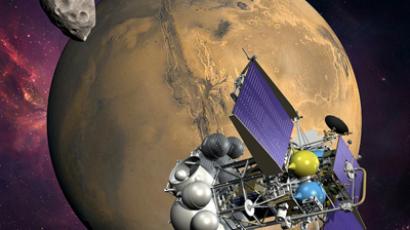Fly me to the Moon: New space plans for Russia
The Russian space agency has announced it is to boost cooperation with its partners in the US and the European Union, and has called for the creation of a permanent base on the Moon.
In an interview with Vesti FM radio station, the head of Roscosmos, Vladimir Popovkin, said the agency was discussing with NASA and ESA the possibility of exploring the Moon. A joint mission would prospect for water and natural resources on the Moon, and build a base for future space explorers. Between now and the year 2020, the agency plans to send two unmanned probes to the Earth’s satellite and is currently working on an advanced manned transportation system capable of reaching the Moon, Popovkin said. The Roscosmos chief added that the final goal of the proposed Lunar project would be to create either a base on the Moon or a station in proximity to the satellite. He admitted that the program would only get the green light if money could be found to fund it. NASA has confirmed that the United States is involved in the program alongside Russia and nine other countries, and said it was aimed at enhancing the human presence in the Solar system and had the long-term goal of manned exploration of Mars. Moon exploration would help cosmonauts learn how to live and work on other planets and would create a foundation for further Martian efforts. According to Igor Afanasyev from the Cosmonautics News magazine, Moon exploration can also help us to understand how the Earth came into being. “We shall first explore the planet’s structure in order to understand the Moon’s origins which will help us understand more about the Earth’s origins,” he said. “We want to know how the Earth came into being and the Moon will help us in establishing this because it still preserves some elements that have vanished from the Earth.” Afanasyev added that exploration of the Earth’s satellite could revolutionize the whole space industry. “The Moon’s conditions for launching space missions are much better than the Earth’s,” Afanasyev added. “They are less energy-consuming, so it may well come at some point to building spacecraft there, filling them with fuel made of water developed right there, on the Moon, and sending them off on further space missions. That is what I think it will be like.”















